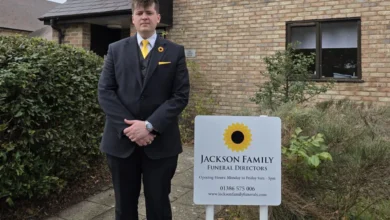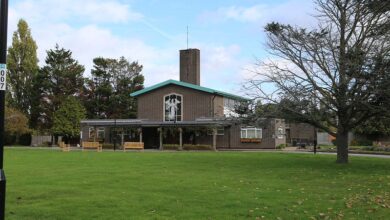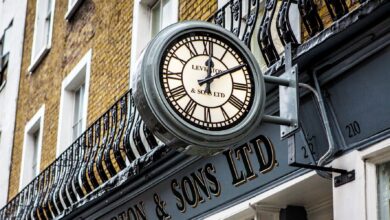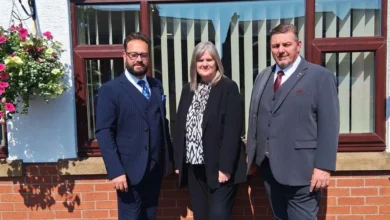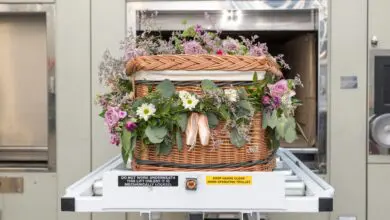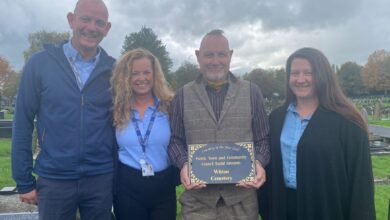Funeral director called on for Quaker re-interment
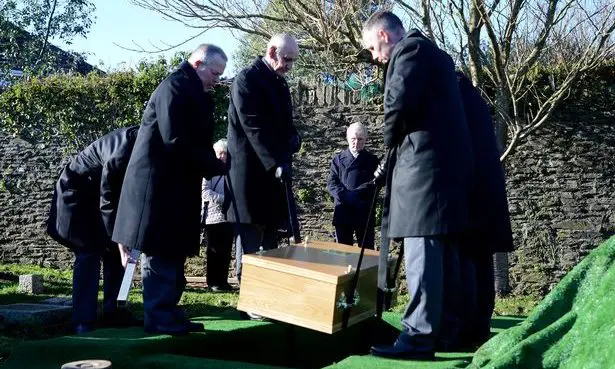
Register to get 1 free article
Reveal the article below by registering for our email newsletter.
Want unlimited access? View Plans
Already have an account? Sign in
The Walter C. Parson Group was pleased to be called on for the re-interment of a woman who died in the early 19th Century.
The lead lined coffin of 70-year-old Elizabeth Cookworthy was discovered during the demolition of Bretonside bus station in Plymouth last year.
Her remains were originally buried in a Quaker cemetery at the site, which was cleared during building works in the 1950s.
Elizabeth, who died on October 9, 1833, was re-interred at Efford Cemetery on Wednesday 7 February, along with the unidentified remains of one other person.
John Ware, assistant managing director at Walter C. Parson Funeral Directors, said he had been contacted by the developers in December last year.
He said: “They told us that they had discovered a coffin at the site in Bretonside and called on us for our expertise.
“Elizabeth’s coffin was then brought to our chapel of rest for safekeeping while arrangements were made for her to be reburied in an appropriate place.”
Local researchers had been trying to track down some of Elizabeth’s relatives, but as no one could be found, it was decided that her reinternment would be organised in association with the Plymouth Quaker society.
The lead-lined coffin of Elizabeth Cookworthy – who died 185 years ago – was initially thought to belong to the daughter of porcelain manufacturer and Quaker William Cookworthy.
But it has now been revealed that Elizabeth was actually the widow of William’s grandson, who had the same name.
The Cookworthy’s were well-known in the Quaker community and were very well respected across the region.
Elder Manfred Kemmner led the poignant service at Efford Cemetery.
He paid tribute to Elizabeth and the unidentified person during the traditional Quaker funeral.
He said: “Today we have the honourable task of reburying Elizabeth Cookworthy and one more coffin containing the remains of an unidentified person.
“In 1953 Bretonside bus station was built and the graves in the Quaker burial ground were removed and re-interred here in this special plot at Efford Cemetery.
“I am sure that they will now be happy here on top of a beautiful hill among relatives and friends.”
Local researchers had been trying to track down Elizabeth’s relatives before the burial, but as no one could be found, it was decided that her re-internment would be organised in association with the Plymouth Quaker society.
When Elizabeth died, Mr Kemmner explained that her estate was passed to another member of the family, who used the money to establish a charity.
Fox and Crewdson’s Charity is still running in Plymouth today and representatives from the charity, which provides accommodation and housing to disadvantaged elderly women, were in attendance at the service to pay their respects to the family.


